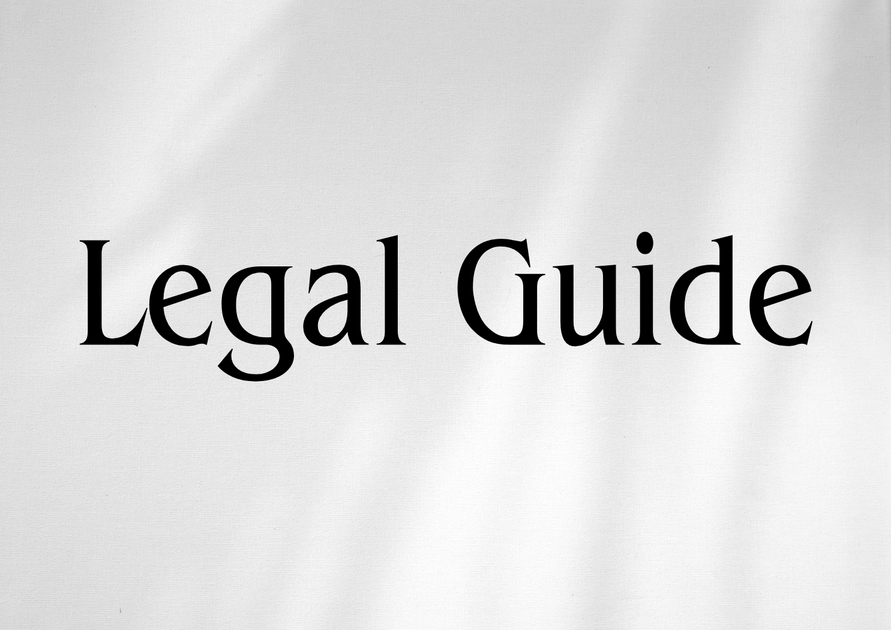Introduction
In an era when international business transactions and travel are increasingly reliant on air transportation, understanding the legal framework governing airline liability is critical for organizations with operations in Qatar and the UAE. The Montreal Convention of 1999 stands as the cornerstone for harmonizing and updating the liability regime relating to international carriage by air, defining the rights of passengers and cargo owners, and establishing clear liability limits for airlines. For UAE-based legal practitioners, HR professionals, insurers, and executives with business activities connected to Qatar, knowledge of the Montreal Convention’s liability regime is indispensable—not only for regulatory compliance but as part of prudent corporate risk management.
This article delivers a comprehensive, consultancy-level legal analysis of liability limits under the Montreal Convention as implemented in Qatar, with an expert focus on its practical implications for UAE businesses and the broader regional legal environment. We examine the regime’s core principles, analyze the latest amendments in light of international developments, address compliance requirements, and offer actionable guidance for risk mitigation. Exploring comparative perspectives between the prior Warsaw regime and the Montreal rules, and drawing on official UAE and Qatari legal sources, we present best practices designed to keep organizations both compliant and strategically protected.
Table of Contents
- Overview of the Montreal Convention as Applied in Qatar
- Core Liability Framework: Key Legal Provisions and Updates
- Key Categories of Compensation and Financial Limits
- Practical Considerations for UAE Businesses and Legal Practitioners
- Comparative Analysis: Montreal vs. Warsaw Regimes
- Hypothetical Case Studies Illustrating Liability Exposure
- Risks, Penalties, and Proactive Compliance Strategies
- Conclusion and Strategic Outlook
Overview of the Montreal Convention as Applied in Qatar
The Legal Foundation and Objectives
The Montreal Convention, formally the Convention for the Unification of Certain Rules for International Carriage by Air (1999), is an international treaty adopted to modernize and consolidate the liability rules concerning carriage of passengers, baggage, and cargo. Qatar is a contracting state, as is the UAE; the Convention took effect in Qatar following ratification via Emiri Decree, and continues to form the legal basis for air carrier liability.
The Convention’s principal objectives include:
- Establishing uniform rules for international air carriage liability
- Prescribing clear limits for compensatory damages in cases involving death, injury, baggage loss, cargo damage, and delays
- Strengthening consumer protection while providing legal certainty for carriers
- Providing for periodic review of financial limits to address inflation and market developments
Incorporation into Qatar’s Legal System
Qatar officially adopted the Montreal Convention by ratification under Law No. 21 of 2005, confirmed by Emiri Decree No. 80 of 2005. Consequently, its provisions—especially those regarding liability limits—possess direct legal force in Qatar’s courts. In parallel, the UAE’s adoption and implementation are codified by Federal Decree-Law No. 35 of 2020 Regarding the Ratification of the Convention for the Unification of Certain Rules for International Carriage by Air. Thus, businesses in both countries operate in a harmonized regime, facilitating both compliance and claims management across GCC borders.
For reference, the official texts can be accessed via the Qatar Ministry of Justice and the UAE Ministry of Justice.
Core Liability Framework: Key Legal Provisions and Updates
Strict and Presumed Liability
The Montreal Convention modifies prior liability regimes by introducing a two-tiered system of liability:
- Strict Liability: For damages arising from death or injury of passengers up to a defined threshold (currently set at 128,821 Special Drawing Rights—SDRs), carriers are strictly liable regardless of fault.
- Presumed Liability: For claims exceeding this threshold, the carrier can only avoid liability by proving absence of negligence or wrongful act. This fundamentally shifts the burden of proof and increases protection for claimants.
Special Drawing Rights (SDRs) and the Limits
The Convention utilizes the International Monetary Fund’s Special Drawing Rights as the unit of account for setting compensation caps. Notably, Article 24 mandates periodic review and adjustment of limits to counter inflation, with updated figures published as of December 2023:
| Type of Claim | Current Liability Limit (SDR) | Approximate USD Value* |
|---|---|---|
| Death/Injury (Passenger) | 128,821 | Approx. 173,000 |
| Baggage Destruction/Loss | 1,288 per passenger | Approx. 1,725 |
| Cargo Damage | 22 per kg | Approx. 29 |
| Delay (Passenger) | 5,346 per passenger | Approx. 7,160 |
*Values subject to daily SDR-USD fluctuations
Update Mechanism and Latest Adjustments
The International Civil Aviation Organization (ICAO) periodically reviews and adjusts these limits. Qatar and the UAE adhere to these adjustments by official notification published on government portals such as the Qatar Government Portal and the UAE’s official legislative repository.
Legal practitioners and HR managers must maintain awareness of these shifts, integrating periodic limit reviews into compliance checklists and client advisory practices.
Key Categories of Compensation and Financial Limits
Death and Bodily Injury
Article 17 of the Convention stipulates carrier liability for bodily injury or death when the accident arises on board or during embarkation/disembarkation. Compensation up to 128,821 SDRs is automatic, and claimants need not prove negligence. Above this, claimants may recover additional damages unless the airline disproves fault or negligence.
Baggage and Cargo Loss
- For checked baggage: 1,288 SDRs per passenger (unless a higher value was declared and paid for in advance).
- For cargo: 22 SDRs per kilogram.
- For delay: Up to 5,346 SDRs per passenger for reasonable proven losses subject to mitigation obligations.
Declaring Higher Value and Insurance
Baggage and cargo owners have the right to declare a value exceeding the limit, with carriers entitled to charge additional fees for the higher liability undertaking. Commercial entities should consider parallel insurance strategies, as standard airline liability can be well below the value of shipped goods or high-end business equipment.
Practical Considerations for UAE Businesses and Legal Practitioners
Contracting with Airlines: Local Law and Montreal Convention Interplay
While the Montreal Convention takes precedence for international flights, local Qatari law as well as UAE Federal Decree-Law No. 35 of 2020 may apply where Convention provisions are silent or in domestic scenarios. This can create nuanced ‘dual compliance’ obligations for UAE-based companies doing business with Qatari carriers, especially airlines headquartered in Doha operating flights from Dubai or Abu Dhabi.
Implications for Corporate HR and Executive Travel Policies
- Executive and employee air travel policies should explicitly delineate Montreal Convention rights, the necessity for immediate loss reporting, and claims procedures to mitigate delay or under-compensation risks.
- Companies should routinely review liability coverage limits and supplement them with private insurance for business-critical shipments or sensitive personnel.
Cross-Border Claims and Jurisdiction
The Convention’s provisions allow claimants to initiate proceedings in the principal place of business, the destination, or the passenger’s principal residence if the carrier operates there—granting strategic options for UAE entities engaged in cross-border commerce with Qatari airlines. Legal teams should leverage these options to pursue claims in the most favorable forums, subject always to applicable limitation periods (typically two years from the incident).
Comparative Analysis: Montreal vs. Warsaw Regimes
Key Differences and Legal Evolution
The Montreal Convention replaced the outdated Warsaw system, modernizing liability mechanisms and substantially increasing compensation ceilings. UAE and Qatari courts are both now aligned to Montreal; however, practitioners must recognize that air transport agreements executed before the effective date may still fall under Warsaw rules in limited circumstances.
| Aspect | Warsaw Regime (pre-2005/2020) | Montreal Convention (current) |
|---|---|---|
| Liability Limit for Death/Injury | Approx. 16,600 SDR | 128,821 SDR+ |
| Baggage Limit | 17 SDR/kg | 1,288 SDR (per passenger) |
| Documentation | Mandatory air waybill/ticket | Greater focus on electronic documentation |
| Delay Claims | Not systematically covered | Specifically addressed |
| Limitation Period | 2 years | 2 years |
Visual Suggestion: ‘Liability Comparison Chart: Warsaw vs. Montreal’ for client presentations and policy briefings.
Hypothetical Case Studies Illustrating Liability Exposure
Case Study 1: Executive Injury on Doha–Dubai Flight
A UAE multinational’s executive suffers significant injury during turbulence on a Qatari carrier’s international flight from Doha to Dubai. The company’s HR and legal teams must:
- File a claim promptly, citing Article 17 deductions and SDR limits
- Consider supplemental travel insurance if medical or lost earnings exceed Montreal limits
- Assess the optimal forum for proceedings—Qatar, UAE, or country of principal residence
Case Study 2: Time-Critical Cargo Damage
A logistics firm ships high-value electronics from Dubai to Doha. Cargo is lost in transit, and the shipment’s value surpasses the 22 SDR/kg cap. The firm:
- Relies on Convention liability as a baseline
- Leverages prior declaration of value to pursue greater compensation
- Reviews insurance arrangements for excess loss
- Documents incident for prompt legal recourse, mindful of time-bar constraints
Case Study 3: Passenger Baggage Delay Impacting Conference Attendance
A member of a UAE-based delegation is delayed due to late baggage arriving on a Qatari airline flight, resulting in missed conference sessions and indirect business losses. Under Article 19, the affected individual may claim up to 5,346 SDRs for inconvenience and incidental costs, provided they can evidence actual economic loss and have undertaken reasonable mitigation steps (e.g., purchasing essentials).
Risks, Penalties, and Proactive Compliance Strategies
Consequences of Non-Compliance
- Failure to honor liability limits risks regulatory fines, reputational harm, and aggravated damages in Qatari and UAE courts.
- Non-compliance with reporting and claims protocols can result in forfeiture of compensation rights or exposure to bad faith litigation.
Recommended Compliance Strategies
- Update Contracts: Ensure all contracts with Qatari and UAE carriers reference Montreal Convention limits and procedures.
- Employee Training: Train HR, travel desk, and compliance staff in Convention rights, documentation, and claims protocols.
- Periodic Limit Reviews: Integrate SDR limit checks into compliance calendars, especially following ICAO updates.
- Insurance Integration: Procure supplementary cargo/passenger liability and travel insurance for high-value business travel or shipments.
- Legal Risk Audits: Conduct regular internal audits to stress-test documentation, claims response, and incident reporting mechanisms.
Visual Suggestion: ‘Liability Claims and Compliance Checklist’ for client HR and logistics departments.
Conclusion and Strategic Outlook
The Montreal Convention’s implementation in Qatar and its harmonization with UAE law mark a critical personal and commercial protection mechanism for GCC-based airlines and their clients. For UAE clients, understanding liability ceilings, compliance nuances, claim procedures, and jurisdictional options is not only essential for legal compliance but is also a linchpin of enterprise risk management in globalized commerce. With compensation thresholds now periodically adjusted to account for broader economic and legal trends, business leaders and legal advisors should prioritize regular policy reviews, contractual updates, and insurance renewals.
Looking forward, as regional air traffic continues to expand and the pace of business travel and cargo movement accelerates, the importance of robust liability mitigation and compliance will grow. UAE organizations are best advised to maintain proactive, documented protocols and to consult experienced legal counsel when navigating cross-border air liability scenarios. By remaining ahead of legislative updates and ICAO limit adjustments, clients will avoid unnecessary exposures and fortify their legal and commercial positions in the rapidly evolving GCC aviation market.
Key Takeaways for UAE Clients
- Stay updated on SDR-based liability limit changes via ICAO and official gazettes.
- Pair Convention protections with additional insurance and contractual clarity.
- Document incidents promptly and utilize optimal venues for dispute resolution.
- Engage legal experts to manage exclusion zones, limitation periods, and emerging regulatory updates for sustained compliance and resilience.




